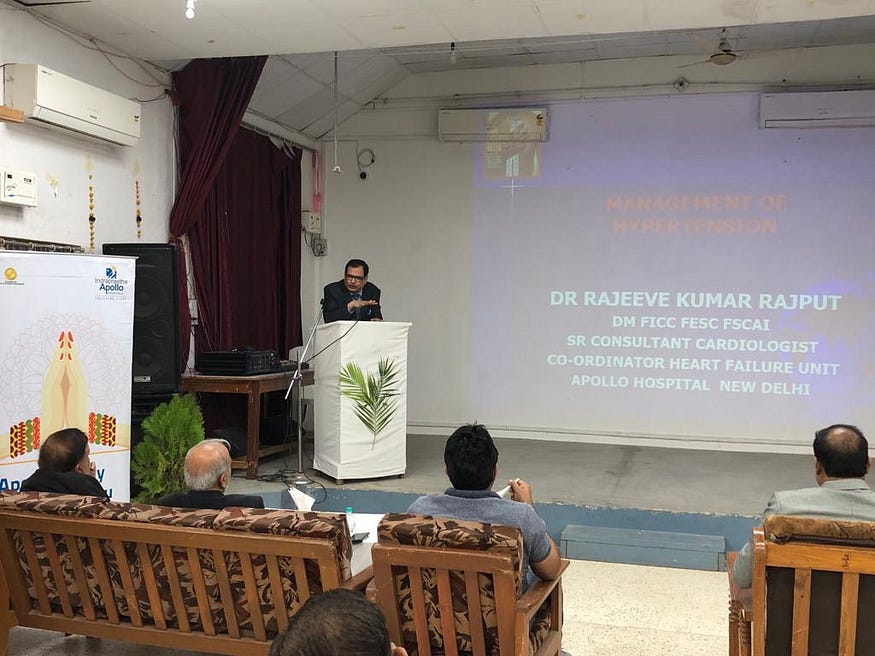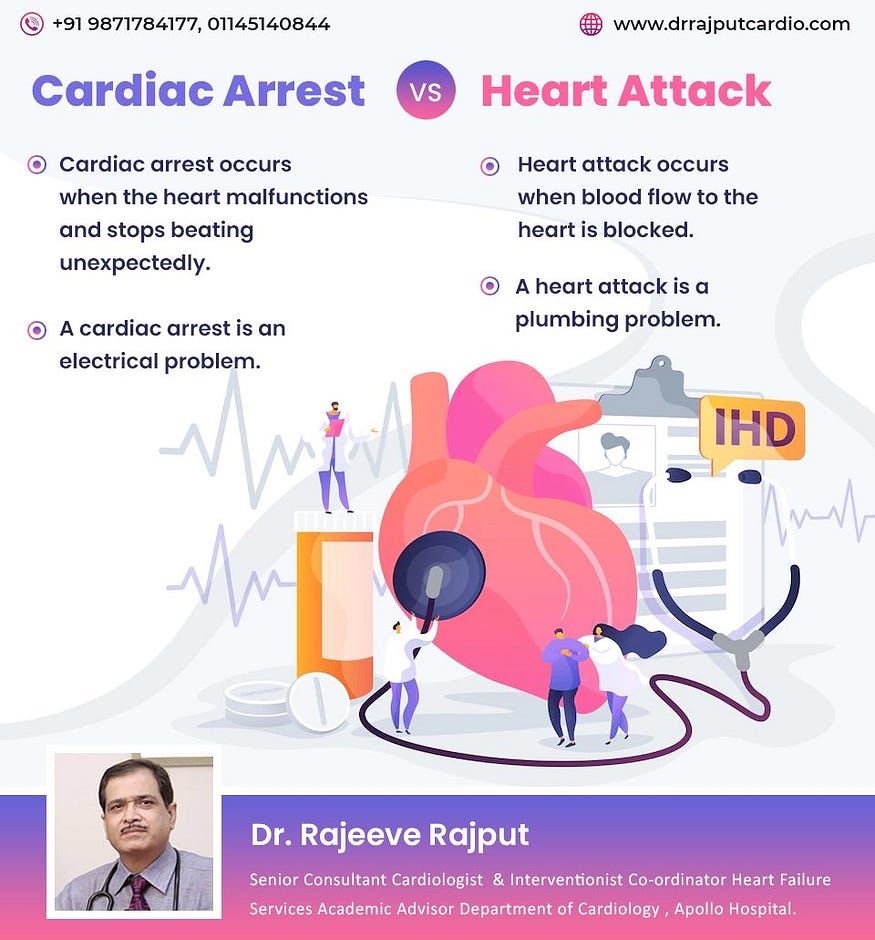What is Cardiac Arrest and How Does it Different from a Heart Attack?
Cardiac arrest and heart attack are two serious medical conditions that involve the heart. Although they are often used interchangeably, they are not the same thing. Understanding the differences between cardiac arrest and a heart attack can help you recognize the symptoms, seek appropriate medical attention, and potentially save a life.
What is a Heart Attack?
A heart attack occurs when blood flow to the heart muscle is blocked, usually by a blood clot. The heart muscle needs a constant supply of oxygen-rich blood to function properly. When blood flow is interrupted, the heart muscle can become damaged or die. The severity of a heart attack depends on the extent of damage to the heart muscle.
Symptoms of a Heart Attack
The symptoms of a heart attack can vary from person to person, let us look at these common symptoms recommended by our Top Cardiologist In Delhi:
1. Chest pain or discomfort, which may feel like pressure, squeezing, fullness, or pain
2. Pain or discomfort in the arms, neck, jaw, back, or stomach
3. Shortness of breath
4. Sweating
5. Nausea or vomiting
6. Feeling lightheaded or dizzy
It is important to note that not everyone who has a heart attack experiences chest pain. Women may have different symptoms, such as shortness of breath, nausea, or back or jaw pain.
Treatment for a Heart Attack
If you or someone you know is experiencing symptoms of a heart attack, it’s important to seek medical attention right away. The goal of treatment is to restore blood flow to the heart muscle as quickly as possible to minimize damage. Treatment options may include:
1. Medications, such as blood thinners, clot-busting drugs, and nitroglycerin
2. Procedures, such as angioplasty or stenting to open blocked arteries
3. Surgery, such as bypass surgery to reroute blood flow around blocked arteries
What is Cardiac Arrest?
Cardiac arrest is a sudden loss of heart function. It occurs when the heart’s electrical system malfunctions, causing the heart to stop beating or beat irregularly. When the heart stops beating, blood flow to the brain and other organs stops, and the person loses consciousness within seconds.
Symptoms of Cardiac Arrest
According to the Best Heart Specialist In Delhi, the symptoms of cardiac arrest are sudden and may include the:
1. Sudden loss of consciousness
2. No pulse or breathing
3. Gasping or unusual breathing sounds
4. Cardiac arrest is a medical emergency, and immediate action is necessary to prevent brain damage or death.
5. Treatment for Cardiac Arrest
A cardiac arrest requires immediate CPR (cardiopulmonary resuscitation) to keep blood flowing to the brain and other vital organs until medical help arrives. CPR involves chest compressions and rescue breathing to help keep oxygen flowing to the body. In addition, defibrillation, which delivers an electric shock to the heart, may be necessary to restore normal heart rhythm.
Prevention of Cardiac Arrest and Heart Attack
There are several lifestyles changes you can make to reduce your risk of both cardiac arrest and heart attack, including:
1. Eating a heart-healthy diet
2. Exercising regularly
3. Not smoking
4. Maintaining a healthy weight
5. Managing stress
6. Controlling high blood pressure, cholesterol, and diabetes
If you have a history of heart disease, it is important to follow the Top Cardiologist In Apollo Hospital Delhi, India recommendations for medication and lifestyle changes to reduce your risk of cardiac arrest and heart attack.
In conclusion, although cardiac arrest and heart attack both involve the heart, they are distinct medical emergencies with different symptoms and treatments. A heart attack occurs when blood flow to the heart muscle is blocked, while cardiac arrest is a sudden loss of heart function. Knowing the signs and symptoms of both conditions and seeking immediate medical attention can be life-saving. Making healthy lifestyle choices can also reduce your risk of cardiac arrest.


Comments
Post a Comment